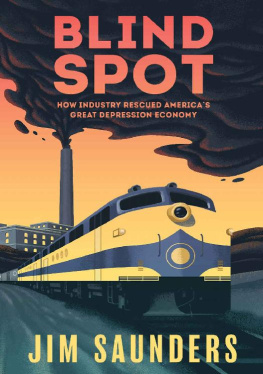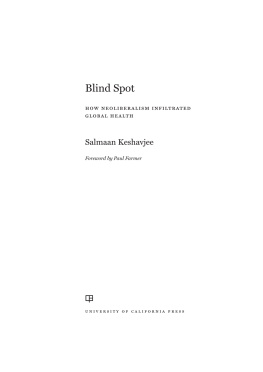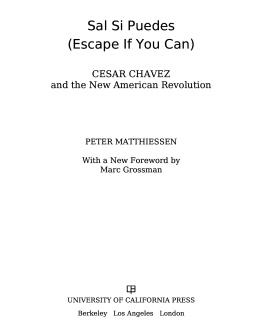Michael J. Economides - Americas Blind Spot: Chavez, Oil, and U.S. Security
Here you can read online Michael J. Economides - Americas Blind Spot: Chavez, Oil, and U.S. Security full text of the book (entire story) in english for free. Download pdf and epub, get meaning, cover and reviews about this ebook. year: 2012, publisher: Continuum, genre: Politics. Description of the work, (preface) as well as reviews are available. Best literature library LitArk.com created for fans of good reading and offers a wide selection of genres:
Romance novel
Science fiction
Adventure
Detective
Science
History
Home and family
Prose
Art
Politics
Computer
Non-fiction
Religion
Business
Children
Humor
Choose a favorite category and find really read worthwhile books. Enjoy immersion in the world of imagination, feel the emotions of the characters or learn something new for yourself, make an fascinating discovery.
- Book:Americas Blind Spot: Chavez, Oil, and U.S. Security
- Author:
- Publisher:Continuum
- Genre:
- Year:2012
- Rating:3 / 5
- Favourites:Add to favourites
- Your mark:
- 60
- 1
- 2
- 3
- 4
- 5
Americas Blind Spot: Chavez, Oil, and U.S. Security: summary, description and annotation
We offer to read an annotation, description, summary or preface (depends on what the author of the book "Americas Blind Spot: Chavez, Oil, and U.S. Security" wrote himself). If you haven't found the necessary information about the book — write in the comments, we will try to find it.
Americas Blind Spot: Chavez, Oil, and U.S. Security — read online for free the complete book (whole text) full work
Below is the text of the book, divided by pages. System saving the place of the last page read, allows you to conveniently read the book "Americas Blind Spot: Chavez, Oil, and U.S. Security" online for free, without having to search again every time where you left off. Put a bookmark, and you can go to the page where you finished reading at any time.
Font size:
Interval:
Bookmark:
BLIND SPOT
BLIND SPOT

| AEO | Annual Energy Outlook |
| ALBA | Alianza Bolivariana para los Pueblos de Nuestra Amrica |
| BP | British Petroleum |
| CAPP | Canadian Association of Petroleum Producers |
| CEPR | Center for Economic and Policy Research |
| CGES | Center of Global Energy Studies |
| CITGO | CITGO Petroleum Corporation |
| CNOOC | China National Offshore Oil Corporation |
| CNPC | China National Petroleum Corporation |
| CSIS | Center for Strategic and International Studies |
| DAS | Departamento Administrativo de Seguridad |
| DOE | Department of Energy |
| ECLAC | Economic Commission for Latin America and the Caribbean |
| EER | Emerging Energy Research |
| EIA | Energy Information Administration |
| ENI | Ente Nazionale Idrocarburi (Italys largest oil company) |
| EOR | Enhanced Oil Recovery |
| ETA | Euskadi Ta Askatasuna (Basque terrorist group) |
| FARC | Revolutionary Armed Forces of Colombia |
| IEA | International Energy Agency |
| IHS | Information Handling Services (Energy and engineering consulting firm) |
| IISS | International Institute for Strategic Studies |
| MENA | Middle East and North Africa |
| NATO | North Atlantic Treaty Organization |
| NGL | Natural Gas Liquid |
| OAS | Organization of American States |
| OECD | Organization for Economic Cooperation and Development |
| ONGC | Oil and Natural Gas Corporation |
| PDVSA | Petrleos de Venezuela SA |
| PEMEX | Petrleos Mexicanos |
| PRI | Institutional Revolutionary Party |
| UNASUR | Union of South American Nations |
| USAID | US Agency for International Development |
| USGS | United States Geological Survey |
| WEO | World Energy Outlook |
| WTI | West Texas Intermediate |
| YPF | Yacimientos Petrolferos Fiscales |
Font size:
Interval:
Bookmark:
Similar books «Americas Blind Spot: Chavez, Oil, and U.S. Security»
Look at similar books to Americas Blind Spot: Chavez, Oil, and U.S. Security. We have selected literature similar in name and meaning in the hope of providing readers with more options to find new, interesting, not yet read works.
Discussion, reviews of the book Americas Blind Spot: Chavez, Oil, and U.S. Security and just readers' own opinions. Leave your comments, write what you think about the work, its meaning or the main characters. Specify what exactly you liked and what you didn't like, and why you think so.














